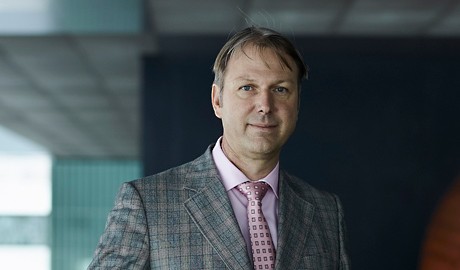Internet of Things
IoT data – digital gold
The IoT makes it possible for any company to mine and analyse the “digital gold” that is data in the modern age and turn it into something profitable. This takes expertise, the right technologies and trusted partners.
Text: Felix Raymann, Image: Unsplash,
The Internet of Things is about more than just connecting sensors and devices to the internet. IoT has already evolved into a complex field involving various factors such as technology, information, business models and security. It also demands a greater degree of specialised expertise in the areas of device management, access technologies, IT integration and data analysis.
In other words, instead of individual “things”, entire systems are interconnected, requiring very different solutions depending on the application. “In the past, for example, IoT applications usually just sent sensor measurements to the operator’s data centre through a linear process; now the processes are more complex. Now, manufacturers, logistics companies, service providers, users, etc. can use the same data collected by one of these devices but for different purposes,” says Julian Dömer, Head of IoT at Swisscom.
Historic data, publicly available data and data from other networked “things” can be aggregated as well. Consequently, IoT projects require expertise in many different areas, such as connectivity, cloud management, IT security and data analysis. And the spectrum of applications is broadening all the time. Local IoT applications with on-site data processing are one scenario, as are global networks that take into account roaming management and the compliance requirements of various countries.
IoT presents challenges for companies of all sizes
Of course, very few companies are capable of taking on complex IoT projects like these on their own. The essential thing is to work with partners who know exactly what they are doing and who are well integrated into a solid IoT ecosystem. This particularly applies to companies entering uncharted waters with new IoT projects or that want to transform their existing basic IoT system into something profitable. In the future, IoT will play a bigger role in all other spheres of work and life. And it won’t just generate significant added value for big high-tech corporations but for many SMEs and start-ups as well. In addition to the networking of things, device management and data collection, the main focus of IoT value creation is analysis of data. The Internet of Things is only a means to an end – to collect data. The goal of IoT projects is to generate insights from the data that has been collected. When does a machine need to be serviced? How long has a device been in use? This can help identify new usage scenarios.
One ecosystem for comprehensive IoT solutions
IoT is the basis for more sophisticated business models and the possibilities are practically limitless. The development of IoT technologies has taken many different paths and occurs in very short cycles. “Customers possess the business knowledge for applications, which usually evolves over decades. IoT providers have the technology expertise. The collaboration between the two is a win-win situation for IoT technology providers, the operators and the company developing the application,” says Julian Dömer. “So it’s better to focus on your core business and rely on partners in other areas. Swisscom is able to develop and operate IoT projects of all sizes and complexities, and present them as platform system solutions – all from a single source. Add competent partners who are familiar with the field and possess the specialised expertise and you have a well-rounded portfolio.”
Security plays a key role as well. “At this level of complexity, you always need to know who has access to what data and when,” says Dömer. Devices and data have different protection requirements depending on the IoT application. “If IoT devices are connected via public networks, they are much more vulnerable than if they are in private or secured networks. We use secure networks for around 80 percent of our B2B projects,” says Dömer. Personal and business-relevant data requires more protection than anonymous data. The hardware has to be physically safeguarded as well. It takes trustworthy partners to ensure security at the device, network and data level. “Our IoT customers benefit from Swisscom’s vast international ecosystem in Switzerland and globally.”
IoT requires a cultural transformation
IoT applications are not isolated solutions; they are complex systems that have to be monitored at all times. Most IoT projects not only involve several companies but also different departments within a company, and it is essential that they all cooperate and see eye-to-eye. “If an IoT project is to succeed, the entire company – and, above all, the company’s management – has to support it 100 percent,” says Roger Kaspar, Head of Sales IoT.
The complexity of the projects can be daunting. “When the goal is to streamline existing processes by using IoT, any initial resistance is easier to overcome. The benefit is more concrete, and the budget for the project gets approved with no major hurdles.” But when the goal is to sell an innovation or completely new business idea within the company, there tends to be more initial resistance, as Roger Kaspar explains. “The benefit for many stakeholders is still very vague at this point, and there is often no immediate or obvious return on investments. That means there is a lot of scepticism.”
Companies that previously succeeded in managing all their developments themselves have to change the way they think. For IoT projects, they will have to rely on the highly specialised expertise of partners. They have to build trust in these partners, which amounts to a shift in the culture. Technical obstacles to deploying IoT profitably can be dealt with by partners in the IoT ecosystem. But greater openness, cultural transformation – only the companies themselves can make that happen.
More on the topic:


